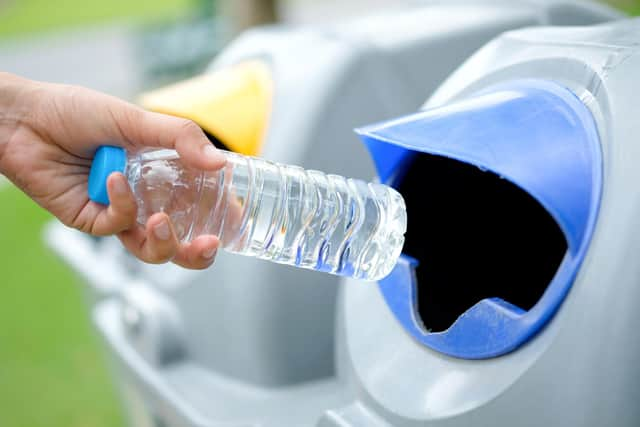Deposit Returns Scheme: Scottish Government must answer key questions - Laura Tainsh
If it wants to maintain its launch timetable, the Scottish Government must focus its attention on clarifying the key unanswered questions on how the scheme will operate.
This includes addressing concerns about labelling of drinks containers. While we know that producers will not be required to change this for the Scottish market, the use of existing labelling and barcodes, particularly on drinks products sold across the UK, creates problems. The Scottish Government stated that existing barcodes will be adequate in terms of security and functionality, but this approach could make it difficult to differentiate between products where a deposit has been paid and those which either existed before the scheme came into effect or which are not Scottish products and are therefore not eligible for return.
Advertisement
Hide AdAdvertisement
Hide AdProvision of self-adhesive barcode labels to smaller producers will help but, further assurances are needed as to how only eligible products are to be returned through the scheme.


A £22m package from Circularity Scotland announced last week to provide further cashflow support for industry will be welcomed, but more details on eligibility for this as well as the one year’s grace period for small producers, announced by ministers at the end of February, are also required.
Wider concerns about changes in recycling services, following the implementation of the DRS, must also be addressed. If kerbside glass and plastics collections are to be reduced or ultimately ended over time, consumers need clarity on how they will manage their recyclable waste with additional investment to make this possible.
Getting this clarification in place before the scheme is fully presented to the public is key in avoiding a potentially wider backlash.
A number of companies within the retail and waste management sector have significantly invested in preparing for the August roll-out of the DRS which makes any further delay a far from ideal outcome. It’s therefore essential that these details be addressed quickly with clear guidance effectively communicated to all concerned groups including Westminster politicians who have threatened to block passage of the legislation.


If, however, the Scottish Government is unable to provide the required clarity over these important logistical and practical issues surrounding the scheme before its introduction, postponement will be the only sensible option.
Launching a scheme while there remains a lack of understanding or uptake from industry would render it ineffective and ultimately unsuccessful. As we saw with the Scottish Government’s delay to its proposed landfill ban on biodegradable waste, it is better to take stock and listen to the experience of industry before implementing significant policy measures.
The DRS has the potential to make a positive impact on reducing litter and lowering carbon emissions in Scotland, but unless it is implemented with the support of industry it is at risk of failing to meet those objectives.
Laura Tainsh is a partner and waste management specialist lawyer at Davidson Chalmers Stewart
Comments
Want to join the conversation? Please or to comment on this article.